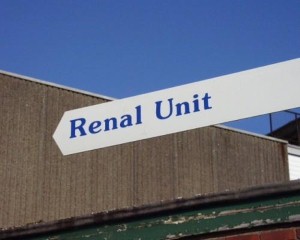|
Regional News of Thursday, 26 April 2012
Source:GNA
Mr Mohammed Alhassan, Deputy Inspector General of Police, has said providing quality health care in the contemporary era required the collective effort of all stakeholders in the sector.
He said there was the need for deeper support and collaboration between the private sector and public institutions including the police service to bring about quality and affordable healthcare delivery to people in the country.
Mr Alhassan said this when inaugurating a Dialysis Centre at the Police Hospital, adding that, the creation of the centre was as a result of a private-public endeavour between the Police Hospital and Health-On-Wheels.
Health-On-Wheels is an NGO based in the United States of America that specialises in health education on diabetes, hypertension, HIV and AIDS and Family Planning to some communities in Africa, including the management of renal failure.
He said over the years, the Police Administration had embarked on various policy interventions aimed at improving the infrastructural and service delivery capacity and scope of the Police Hospital.
“As law enforcement agencies, we believe that a sound health support service is critical to a sound mind and improved professional service delivery, that meets the growing expectation of our people and community,” he added.
Mr Alhassan said the centre though located in the Police Hospital, was open to the general public and that other organisations and well meaning people in the country should emulate the gesture of Health-On-Wheels, to improve healthcare delivery in the country.
He appealed to the Medical Director and Staff of the hospital to exhibit the highest sense of care and maintenance for the centre so that the dreams of those who contributed their resources to the accomplishment of the facility would remain relevant at all times.
Brigadier General Dr J. H. Wadhwani, Acting Medical Director of Police Hospital, said the centre being the second in the southern sector of the country was to help alleviate the plight of people with failing renal function or renal failure.
He said the centre was established at a time when renal failure from various causes appeared to be on the increase in the country, saying the collaboration would help improve the capacity of the hospital as a health provider to be able to deliver quality service to those who would patronise it and help reduce the queue and pressure on the Korle-Bu Teaching Hospital Renal Centre.
He said the NGO’s choice of the Police Hospital in this project was based on the unique and strategic role of the hospital in promoting good healthcare and the disciplined professional staff who always seek to deliver efficient healthcare services to the people of Ghana.
Brigadier General Dr Wadhwani said the centre would go a long way to awaken Police-Private partnership concepts in meeting health and other security needs of Ghanaians in the country and pave way for other well meaning individuals and corporate organisations to extend a helping hand to the hospital to acquire modern diagnostic and curative equipments.
Dr Samuel Anim-Addo, Chief Executive Officer of Health-On-Wheels, said hospitals needed to be turned into modern centres that would provide quality and affordable renal care to people with renal failure.
He said renal failure had become a household discussion in recent times, and most people were dying due to unaffordable and inaccessible health care.
Dr Anim-Addo urged government to support people with renal failure by giving them assistance to subsidise the pressure they endured.**
|
 Log in to explore the world's most comprehensive database of dialysis centres for free!
Log in to explore the world's most comprehensive database of dialysis centres for free!  Professional dialysis recruitment
Professional dialysis recruitment





